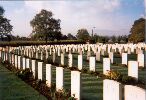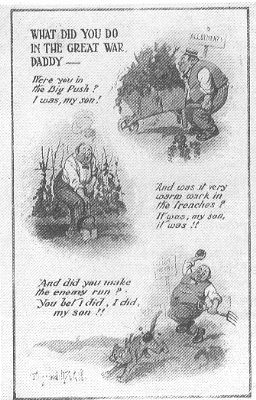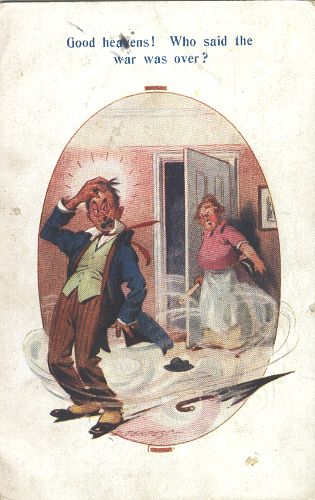
Newton-le-Willows and
Earlestown War Memorial

| OTHER WARS |
 |
Newton-le-Willows andEarlestown War Memorial |
 |
| The
Great War Roll of Honour |
|||||||||||||||||||||||||
Peter Tucker compares these two giants of the comic postcard scene
(Originally published in Picture Postcard Annual 1996)
(Reproduced by kind permission.)
At 11 a.m. on the 11th November 1918 the Great War was brought to an end. This took people at home in Great Britain by surprise, but it did not take long for the celebrations to begin. There was dancing in Trafalgar Square, bonfires up and down the country, street parties and much flag waving. Although there was a great feeling of relief, there was much sorrow for so many had been lost. There was not a family throughout the land who had not someone to mourn.
As the artists settled down to a new era and a search for different subjects,
they still produced one or two designs referring back to the war. In 'Comique'
series no.2643, McGill refers to a 1914 recruiting poster "What did you
do in the Great War, Daddy?" which depicts a man working on his allotment
(these were very important for growing food for the war effort at home).

Both artists went on to make a terrific contribution to the history of comic
postcards, but Donald McGill achieved the greater fame, if not fortune. I
hope by looking at these few comparisons here you will see that Douglas Tempest
is at least his equal. Soon both artists found another war to exploit, one
as old as man himself, that between man and woman in 'The Battle of the Sexes'.
I leave the last word with Douglas Tempest on 'Comic' series no.750 in which
he draws a drunken husband who has come home late and has received a bash
over the head from his wife armed with a rolling pin. "Good heavens,
Who said the war was over?"

See also "The End"